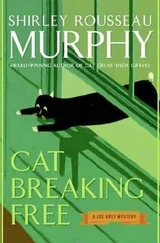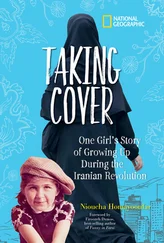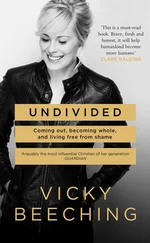Our house was set back about twenty feet from the road, with views of the Wasatch Mountains in the distance. Large pine trees and shrubs in the front yard obstructed much of the view and made the house appear smaller than it really was, but Dad had always loved this location because it had a big backyard where the kids could play. More important, it afforded a degree of privacy, which was crucial, since we didn’t want people to know too much about us. Because plural marriages were forbidden in Utah, our family, like all families in the FLDS, was concerned about the attention we could receive if the outside world knew what was going on inside our house.
What helped families like ours stay under the radar in Salt Lake was the fact that our numbers were few and we were all scattered throughout the Salt Lake Valley. At the time, there were about ninety FLDS families residing in the area, and if we had all lived together in the same location, our way of life may have drawn more attention and brought repercussions from the state government.
My father was beaming that Saturday night as he sat at the head of the dinner table. On either side of him sat his two wives, the mothers of the family, who would have to make room for one more at their table. Sharon, my biological mother, was my father’s second wife. Audrey, my father’s first wife, was known to me as Mother Audrey. The atmosphere was filled with excitement as we looked at one another with the expectation of a good future. My father’s face seemed to swell with pride as we talked about how we would prepare for the ceremony and make room for our new mother. My older sister Rachel and some of my other family members began preparing a song that we children would sing in honor of our new mother’s arrival.
But when the revelry of the night gave way to the realities of daylight, the anxiety of the situation became palpable. Receiving another mother into the family is supposed to be a wonderful, joyous occasion; we had always been taught that this was a gift from God to be celebrated and revered. But beneath our outward joy, a larger, ominous tension lurked, as no one—not my father, my mother, Mother Audrey, or my siblings—was sure how this would impact the volatile chemistry that was already at work in our house.
For as long as I could remember, there had been an undercurrent of contention and unrest in our family. The relationship between Mother Audrey and my mother was complex and often fraught with misunderstanding as their natural feelings of insecurity and jealousy created problems for us all. Trying to coexist in a single-family home with multiple children and two women sharing the same husband had presented challenges that began soon after my mother arrived more than twenty-five years earlier.
Dad met Audrey when he was fifteen. They attended the same high school and traveled there on the same bus. Dad was class president and a football star in his junior year at Carbon High School when a friend set him up with Audrey, a beautiful and vibrant senior. Audrey was smart, educated, and outgoing. The chemistry was right, and they became sweethearts, marrying in August of 1954.
Since neither was raised in the FLDS Church, they came to the faith by chance. After Dad and Audrey had been married for several years, Audrey’s parents converted to the fundamentalist religion. Eager to bring them back to mainstream Mormonism, Dad and Audrey began to study the FLDS religion to learn all that they could about the faith. At the time the church was still known as the Work, and Dad and Audrey’s plan was to scrutinize The Work’s teachings and find its flaws, but instead found themselves swayed to its views.
A few years after joining the FLDS, my father saw my mother, the woman who would become his second wife, through a chance encounter during a trip down to southern Utah. Dad’s training as a geologist made him a valuable resource to the FLDS community, and at that time he’d been working a lot with the main community in the twin border cities of Hildale, Utah, and Colorado City, Arizona, helping them to find sources of potable water.
My mom grew up in an FLDS family in southern Utah and was a member of the church choir. My father first noticed her during a service he attended one Sunday, as she sat with the choir waiting to perform. She bent down and whispered something to her father, Newel Steed, the conductor of the choir, and the slight movement caught my Dad’s attention.
Dad later told me that at that moment, he heard a voice telling him, “Sharon Steed belongs to you as your next wife and you will speak next.” Dad was extremely surprised when he was called up to the podium just minutes later to address the people. Men of the FLDS are taught they hold power to receive some direct revelation from God and Dad believed this was God’s message to him. Following church teachings at the time, my father returned to Salt Lake City and began to pray about his revelation. To his amazement, a few months after he arrived back in Salt Lake, Audrey told him about her own revelation. She had dreamt that a woman named Sharon Steed belonged to their family, and she asked Dad if he knew who she was. Up until this point, my father hadn’t told anyone about his revelation, so hearing this from Audrey was a surprise. That day, he told her about Sharon and they began to pray together.
More than a year passed and nothing happened. Soon afterward, Dad heard that Sharon was going to be placed with another man. Disappointed and worried that he had misunderstood the revelation, he confided in Audrey’s brother, who suggested that Dad speak to the man who was then the head of the church—the prophet Leroy S. Johnson, commonly referred to as “Uncle Roy.” (In the FLDS religion, the term “uncle” is commonly used to refer to the patriarchs and presiding leaders and conveys endearment and respect.) During his conversation with Uncle Roy, Dad learned that there was no marriage planned for Sharon, and the prophet directed him to go home and pray so that Uncle Roy could “take it up with the Lord.”
When it comes to marriage, members practice something called the Law of Placement, in which all marriages are decided by the prophet and based on a revelation that he receives from God. Everything the prophet proclaims is said to be the word of God, and thus if he directs a union, it is akin to God commanding the union.
Several weeks after his conversation with Uncle Roy, during one of Dad and Audrey’s visits to southern Utah, the revelatory word came from the prophet. At the direction of Uncle Roy, Dad and Audrey drove to the home where my mom lived with her family to make an introduction. Mom was in the living room when they arrived, and not knowing what was about to take place, she rose to leave when her father instructed her to stay and meet her husband-to-be. My mother had already been told of the prophet’s placement for her, but when nothing immediately happened she worried she would not be married because traditionally, marriages are “sealed” by the prophet within days, and sometimes hours, of a revelation.
My parents were married that very same day. With no time to sew a wedding dress, Mom made do by wearing her favorite pale pink dress for the ceremony. That night, she was on her way to Salt Lake City to start a new life with my father and Mother Audrey in their six-bedroom house on the “benches” of the Wasatch Mountains.
This would be one of the first nights my mother had ever spent away from her large family. Though it was a difficult and sudden change, her steadfast faith allowed her to see it as positive. The union represented an important milestone: the prophet had found a place where she could start to build a new family. More than anything, Mom was thankful to have been placed.
My mother came of age during a time when the local authorities in southern Utah and northern Arizona were very committed to ending plural marriages. For a time, her father, my Grandpa Newel, had become a target of routine raids, with police turning up unannounced at his ranch in hopes of finding plural wives. As a result, much of her childhood was spent hiding her family’s polygamous living arrangement from authorities and moving between Utah and Arizona to evade detection and capture. In an effort to avoid arrest and possible imprisonment, Grandpa Newel had begun stashing the women and children in various locations around the region. My mother was sent to live in a home near the Arizona border, where some of her siblings could attend school. However, authorities somehow learned of their location, and an anonymous call was placed to my biological grandmother, Alice, alerting her to their knowledge and offering friendship and a way out. Much to the astonishment of law enforcement, none of Grandpa’s wives were unhappy or seeking help. In fact, all five of his wives wanted little more than to be left in peace to live out their lives according to their religious teachings and beliefs. It has often been said that Grandpa Newel and his family were a model to be followed by all.
Читать дальше












